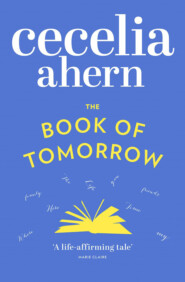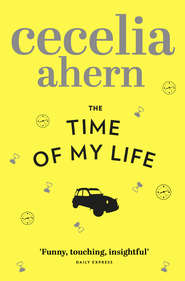По всем вопросам обращайтесь на: info@litportal.ru
(©) 2003-2025.
✖
Lyrebird: Beautiful, moving and uplifting: the perfect holiday read
Автор
Год написания книги
2019
Настройки чтения
Размер шрифта
Высота строк
Поля
The spell is cast.
She’s like a mythical creature, he can barely see where the tree begins and she ends. The leaves that act as their ceiling flutter in the breeze, causing rippling light effects on her face. They’re seeing each other for the first time, two complete strangers, unable to take their eyes off each other. It is the moment his life splits; who he was before he met her and who he becomes after.
PART 1 (#ud08f68fc-7a60-5cc7-b87a-6c70946ca5e7)
One of the most beautiful and rare and probably the most intelligent of all the world’s creatures is that incomparable artist, the Lyrebird … The bird is extremely shy and almost incredibly elusive … characterised by amazing intelligence.
To say that he is a being of the mountains only partially explains him. He is, certainly, a being of the mountains but no great proportion of the high ranges that mark and limit his domain can claim him for a citizen … His taste is so exacting and definite, and his disposition so discriminating, that he continues to be selective in these beautiful mountains, and it was a waste of time to seek him anywhere save in situations of extraordinary loveliness and grandeur.
Ambrose Pratt,
The Lore of the Lyrebird
1 (#ud08f68fc-7a60-5cc7-b87a-6c70946ca5e7)
That Morning
‘Are you sure you should be driving?’
‘Yes,’ Bo replies.
‘Are you sure she should be driving?’ Rachel repeats, asking Solomon this time.
‘Yes,’ Bo replies again.
‘Is there any chance you could stop texting while you’re driving? My wife is heavily pregnant, the plan is to meet my firstborn,’ Rachel says.
‘I’m not texting, I’m checking my emails.’
‘Oh well then.’ Rachel rolls her eyes, and looks out the window as the countryside races past. ‘You’re speeding. And you’re listening to the news. And you’re jet-lagged to fuck.’
‘Put your seatbelt on if you’re so worried.’
‘Well, that’s reassuring,’ Rachel mumbles as she squeezes her body into the seat behind Bo and clicks her seatbelt into place. She’d rather sit behind the passenger seat where she can keep a better eye on Bo’s driving, but Solomon has the seat pushed so far back that she can’t fit.
‘And I’m not jet-lagged,’ Bo says, finally putting her phone down, to Rachel’s relief. She waits to see Bo’s two hands return to the wheel but instead Bo turns her attention to the radio and flicks through the stations. ‘Music, music, music, why does nobody talk any more?’ she mutters.
‘Because sometimes the world needs to shut up,’ Rachel replies. ‘Well, whatever about you, he’s jet-lagged. He doesn’t know where he is.’
Solomon opens his eyes tiredly to acknowledge them both. ‘I’m awake,’ he says lazily, ‘I’m just, you know …’ He feels his eyelids being pulled closed again.
‘Yeah, I know, I know, you don’t want to see Bo driving, I get it,’ Rachel says.
Just off a six-hour flight from Boston, which landed at five thirty this morning, Solomon and Bo had grabbed breakfast at the airport, picked up their car, then Rachel, to drive three hundred kilometres to County Cork in the southwest of Ireland. Solomon had slept most of the way in the plane but it still wasn’t enough, yet every time he’d opened his eyes he’d found Bo wide awake spending every second watching as many in-flight documentaries as she could.
Some people joke about living on pure air. Solomon is convinced that Bo can live on information alone. She ingests it at an astronomical rate, always hungry for it, reading, listening, asking, seeking it out so that it leaves little room for food. She barely eats, the information fuels her but never fills her, the hunger for knowledge and information is never satiated.
Dublin based, Solomon and Bo had travelled to Boston to accept an award for Bo’s documentary, The Toolin Twins, which had won Outstanding Contribution to Film and Television at the Boston Irish Reporter Annual Awards. It was the twelfth award they’d picked up that year, after numerous others they’d been honoured with.
Three years ago they had spent a year following and filming a pair of twins, Joe and Tom Toolin, who were seventy-seven years old at the time. They were farmers who lived in an isolated part of the Cork countryside, west of Macroom. Bo had discovered their story whilst researching for a separate project, and they had quickly taken over her heart, her mind and consequently her life. The brothers lived and worked together all their lives. Neither of them had ever had a romantic relationship with a woman, or with anyone for that matter. They had lived on the same farm since birth, had worked with their father and then taken it over when he passed away. They worked in harsh conditions, and lived in a very basic home of humble means, a stone-floored farmhouse, sleeping in twin beds with nothing but an old radio to keep them entertained. They rarely left the land, received their weekly shopping from a local woman who delivered their meagre items, and did general housekeeping. The Toolin brothers’ relationship and outlook on life had torn at the heartstrings of the audience as it had the film crew, for beneath their simplicity was an honest and clear understanding of life.
Bo had produced and directed it under her production company, Mouth to Mouth productions, with Solomon on sound, Rachel on camera. They’d been a team for the past five years since their documentary, Creatures of Habit, which explored the falling number of nuns in Ireland. Bo and Solomon had been romantically involved for the past two years, since the unofficial wrap party of the documentary. The Toolin Twins had been their fifth piece of work but their first major success, and this year they had been travelling the world going from one film festival or awards ceremony to another, where Bo had been accepting awards and had polished her speech to perfection.
And now they’re on the way back to the Toolin twins’ farm which they are so familiar with. But it is not to celebrate their recent successes with the brothers, it is to attend the funeral of Tom Toolin, the younger brother by two minutes.
‘Can we stop for something to eat?’ Rachel asks.
‘No need.’ Bo reaches down to the floor on the passenger side, dangerously, one hand still on the wheel as the car swerves slightly on the motorway.
‘Jesus,’ Rachel says, not able to watch.
Bo retrieves three power bars and throws one to her. ‘Lunch.’ She rips hers open with her teeth, and takes a bite. She chews aggressively, as if it’s a pill she must swallow, food for fuel, not food for enjoyment.
‘You’re not human, you know that?’ Rachel says, opening her power bar and studying it with disappointment. ‘You’re a monster.’
‘But she’s my little inhumane monster,’ Solomon says groggily, reaching out to squeeze Bo’s thigh.
She grins.
‘I preferred it when you two weren’t fucking,’ Rachel says, looking away. ‘You used to be on my side.’
‘He’s still on your side,’ Bo says, in a joking tone but meaning it.
Solomon ignores the dig.
‘If we’re going to pay our respects to poor Joe, why did you make me pack all my gear?’ Rachel asks, mouth full of nuts and raisins, knowing exactly why but in the mood to stir things up even further. Bo and Solomon were fun like that, never completely stable, always easy to tip.
Solomon’s eyes open as he studies his girlfriend. Two years together romantically, five years professionally and he can read her like a book.
‘You don’t actually think that Bo is going to this funeral out of the goodness of her heart, do you?’ he teases. ‘Award-winning internationally renowned directors have to be receptacles for stories at all times.’
‘That sounds more like it,’ Rachel says.
‘I don’t have a heart of stone,’ Bo defends herself. ‘I re-watched the documentary on the flight. Do you remember who had the final words? Tom. “Any day you can walk away from your bed is a good day.” My heart is broken for Joe.’
‘Fractured, at least,’ Rachel teases, gently.
‘What’s Joe going to do?’ Bo continues, ignoring Rachel’s jab. ‘Who can he talk to? Will he remember to eat? Tom was the one who organised the food deliveries and he cooked.’
‘Tins of soup, beans on toast and tea and toast isn’t exactly cooking. I think Joe will easily be able to take up the gauntlet,’ Rachel smiles, remembering the men sitting down together to shovel hard bread into watery soup in the winter afternoons when darkness had already fallen.
‘For Bo, that’s a three-course meal,’ Solomon teases.
‘Imagine how lonely life will be for him now, up that mountain, especially in the dead of winter, not seeing anyone for a week or more at a time,’ Bo says.
They allow a moment of silence to pass while they ponder Joe’s fate. They knew him better than most. He and Tom had let them into their lives and had been open to every question.
While filming, Solomon often wondered how the brothers could ever function without each other. Apart from the market, and tending to their sheep, they rarely left the farm. A housekeeper would see to their domestic needs, which seemed an inconvenience to them rather than necessity. Meals were taken quickly and in silence, hurriedly shovelling food into their mouth before returning to their work. They were two peas in a pod, they would finish each other’s sentences, move around each other with such familiarity it was like a dance, but not necessarily an elegant one. Rather, one that had been honed over time, unintentionally, unrealised. Despite its lack of grace, and maybe because of it, it was beautiful to see, intriguing to watch.











